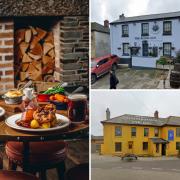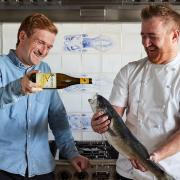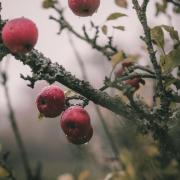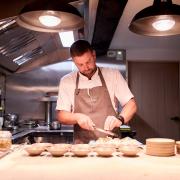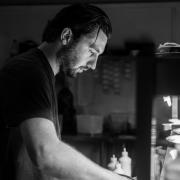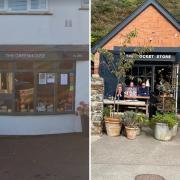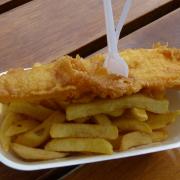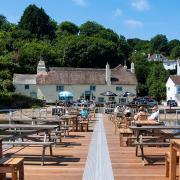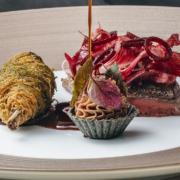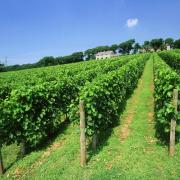Cornwall’s countryside is packed with natural foodstuffs to delight the pickiest of foragers - now a new award-winning book by master forager Rachel Lambert brings a taste of the delights of our native seaweeds...

Foraging has become the hipster byword in culinary adventure – what could be better than growing your own? How about heading out in to the wilds of Cornwall to find and forage the star ingredients to your menu.
Master forager Rachel Lambert has been building up her foraging expertise since her early twenties when she moved to rural Devon. Now living in Penzance, this year she celebrates her t
enth anniversary running foraging courses and teaching the art of finding foods in the wild. She learned about foraging in Europe and Asia and in rural England. But it wasn’t always so. Having grown up in the city, her foraging experience was limited – like many of us – to blackberry picking. It’s still foraging,’ she tells me. But there are hundreds of things you can forage – I probably know about 200 of those, and I teach a much smaller number on my courses.’
Having published her first book, Wild Food Foraging in Cornwall and the Isles of Scilly in 2015, her second book Seaweed Foraging in Cornwall and the Isles of Scilly has been awarded a food book Oscar’. Gourmand World Cookbook Awards 2017, in the category Fish.
The book focuses on 16 varieties of edible seaweeds found around the coasts of Cornwall and the Isles of Scilly, and is both a detailed guide to their identification and nutritional qualities and an inspirational recipe book, offering 32 step-by-step recipes, and featuring more than 90 stunning photographs.
Everything that’s cultivated today has a wild origin – and the things we forage are the unadulterated versions,’ explains Rachel. We used to have a much broader diet, and much of that has been forgotten.’ Foraging also brings new flavours to our palate offering new and exiting contrasts.
So how does Rachel eat her foraged goodies? My most recent meal was bread with Alexander seeds which have a spicy-bitter flavour and a wild salsa verde featuring seasonal seaweeds.
Her courses have become immensely popular to both locals and visitors to Cornwall, looking to include a foodie adventure in their visit beyond a visit to Rick Stein’s Seafood Restaurant.
It’s a fantastic way of enjoying and appreciating and learning about the environment, as well as discovering new flavours,’ she says of her courses which attract a wide range of people, from older couples, to young families. Foraging is an area that’s growing and it’s becoming increasingly trendy and people are becoming more aware of it.’
And as our love of experimenting on foodstuffs has grown, coastal foods like seaweed have increasingly found their way on to our plates – think of Samphire, sea spinach and sea lettuce. At this time of year (the seasonal aspect to land foraging extends to the sea’s bounty) you’ll find Pepper Dulse – better known as the black seaweed we love to pop – Bladder Wrack and Laver (in abundance at this time of year).
Seaweed is still something quite alien to people – they don’t know what to do with it,’ she says. It doesn’t all taste the same – there’s a real range of flavours, textures and uses. Some works in stocks and broths, some are really good as condiments, some for baking, and even some for setting things like panacotta.’
Seaweeds are also incredibly rich in minerals and vitamins. We would have used these for thousands of years,’ she adds. You can use them for salsa, breads, ice creams and hummus to noodles and soups.’ And if foraging sounds like too much hard work – you can get it ready-foraged. I really rate the Cornish Seaweed Company,’ she says.
The Gourmand World Cookbook Awards are regarded as the Oscars of food and drink books, with 89 categories for food and wine books. In 2016, books from 209 countries competed for the awards. Previous winners in English include Rick Stein and Hugh Fearnley-Whittingstall. This book is an intimate voyage to the beaches and the sea,’ says Edouard Cointreau, President of the Jury. It is well written, and useful. It is a model for books that could be done similarly in other regions and coasts in many countries.’
Seaweed Foraging in Cornwall and the Isles of Scilly now goes through to the final round of the Gourmand Awards, and will be judged against books in other languages for The Best in the World. The results will be announced in Shanghai in May. w
Seaweed Foraging in Cornwall and the Isles of Scilly, by Rachel Lambert, £6.95 from local shops, delis and her website. Rachel runs Wild Food Foraging courses, her next take place on 12 February at St Agnes and a seaweed foraging course at Gyllyngvase in Falmouth on 27 February. To find out more and buy her books visit .








